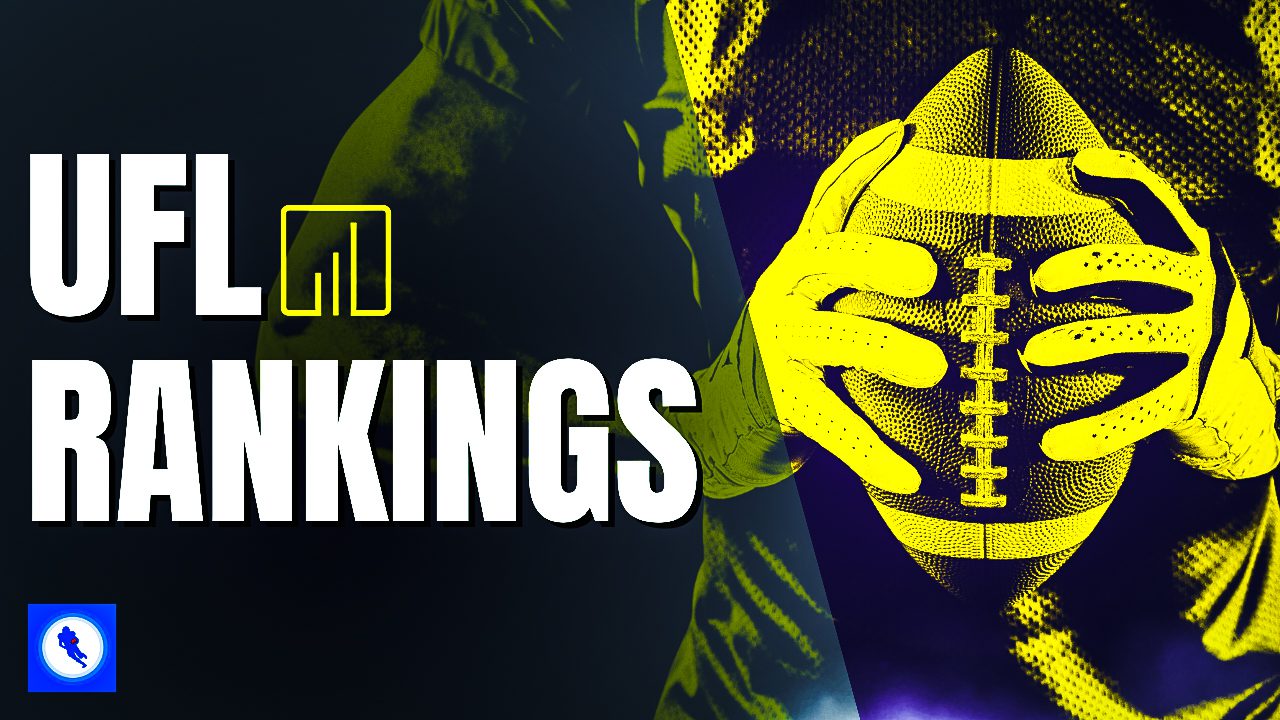
Russ Ivanac looks at high-scoring NHL players who aren't afraid to give out body checks or rack up hits. These forwards and defensemen could be undervalued in fantasy hockey leagues for the 2018-19 season.
Most of the focus in fantasy hockey goes to the marquee names that show up in highlight reels. The goal scorers, the playmakers, the kinds of players that keep opposing goalies up at night. These are the types of players that will go in the early rounds of drafts, and rightfully so, but with all of the focus going to these players and their scoring prowess it is just as important to find those players that will be able to differentiate themselves from their counterparts and provide value in less obvious ways.
One way that can be done is to look at which players contribute significantly in the periphery categories, such as hits. These players are often drafted in line with similar players in terms of their traditional scoring production but offer added value that can prove to be the difference between winning and losing a matchup in any given week.
Typically these players are split into three groups and which group a player falls into plays a large part in where you will be able to acquire them in drafts. The first group is made up of elite players that also contribute to the hits categories. These players will be drafted early regardless of their hit totals, but they also provide high-end value in a less traditional sense which is important to remember when deciding between them and a similar player. The next group is players that go from being fringe roster players to valuable weekly contributors when their hit production is taken into consideration. These players can usually be taken later in drafts but often outperform their draft position due to their contributions across several categories. The final group of players holds fantasy value strictly through their elite level hit production. They can often be drafted in the final rounds or picked up off the waiver wire when needed. In category-based leagues, they can singlehandedly win a category for you in a week and in points-based leagues, they can provide readily available and consistent production depending on your league's settings. Below are examples from each group which will give you an idea of what to look for.
Upgrade To VIP: Win more with our NHL DFS Premium Pass, get expert tools and advice from proven winners! Doug Shain (@BanksterDFS) anchors the team with his exclusive DFS Heat Map, lineup picks and projections. Gain VIP access to our Lineup Optimizer, Research Station, DFS Cheat Sheets and VIP Chat Rooms. Go Premium, Win More!
Elite Players Who Aren't Afraid of Contact
Alex Ovechkin (LW, WSH)
No player that averages more than two hits per game over the last three years has more goals, points, or shots than Alex Ovechkin. He is the cream of the crop when it comes to points and hits production. Ovechkin saw his average drop to 1.7 hits per game last year, but that was still good enough for Ovechkin to remain in the top 100 forwards in the league. Of those 100 forward, only eight averaged more than 0.75 points per game last season and Ovechkin led that short list in points. He may not rack up the hits as he did in his younger years, but Ovechkin is still a first-round fantasy talent and the premier top of the roster contributor to hits. In category leagues, he provides a more significant breadth of coverage and in points leagues, he picks up a bonus that other players with similar point production simply do not.
Dustin Byfuglien (D, WPG)
Only 10 defensemen averaged more points per game than Dustin Byfuglien over the last three years and none of them came close to matching his 2.38 hits per game rate. Of the top 20 defensemen in points per game last year Byfuglien ranked first in hits (147) and penalty minutes (102). There is a short list of defensemen that score more points than Byfuglien, and there are a handful of defensemen that register hits more often than him, but no defenseman does both better. Last year any defenseman that scored more points collected fewer hits, and any defenseman that collected more hits scored fewer points. Byfuglien is the elite intersection of physical play and point production and if your league counts hits he should be one of the first few defensemen drafted.
Ryan Getzlaf (C, ANH)
Ryan Getzlaf is to assists and hits as Ovechkin is to goals and hits. While Ovechkin led all forwards in goals per game in 2017, Getzlaf led all forwards in assists per game and both forwards averaged approximately 1.7 hits per game. Of all players that tallied at least 50 assists in 2017, Getzlaf led the way on a hits-per-game basis and had the third most assists despite only playing in 56 games. Getzlaf has failed to reach 50 assists in a season only once in the last five years so you can trust his point production will stay consistent, and if he can continue to contribute in the hits category he will provide the rare combination of top-end value in both assists and hits that would help him outperform his current draft position.
High-end Hitters with Significant Scoring
David Backes (C/RW, BOS)
Over the last 3 years, no player that averages at least 0.5 points per game has more hits per game than David Backes. That trend continued last season as no forward that scored at least 0.5 points per game had more hits than Backes (137). If 0.5 points per game can be treated as the benchmark for a forward being fantasy relevant or not, then Backes (0.58 points per game) pushes himself safely into being relevant by way of his consistent hit and penalty minute totals. Now that Backes has recovered from the diverticulitis that hampered him last season he is primed to have another productive season from Boston's third line.
Rasmus Ristolainen (D, BUF)
Of the top 20 players in terms of total hits in 2017, only a single player scored more than 40 points or scored at a pace of at least 0.5 points per game. That player is Rasmus Ristolainen and the point production is nothing new for Ristolainen, who has eclipsed 40 points in each of the last three years, but an increase in his hits per game rate, from 2.47 in 2016 to 2.82 in 2017, has given him legitimate multi-category value in fantasy leagues. If Buffalo takes the next step as some expect them to do this season, Ristolainen owners would be amongst the biggest beneficiaries. Ristolainen has averaged over 26 minutes of ice time in each of the last two years, meaning the young rearguard will have plenty of opportunities to pile up the hits.
Patric Hornqvist (RW, PIT)
In 2017 of forwards that played at least 40 games, only 8 forwards registered at least 1.9 hits per game and scored at least 0.5 points per game. Hornqvist was tied for the most goals scored (29) in that group with Evander Kane, but what really makes Hornqvist special is that he is one of only two players to reach those marks in each of the last three years. David Backes, who was mentioned earlier, is the other but Hornqvist offers more scoring upside having scored at least 20 goals and 45 points in four of the last five years. When it comes to points and hits production, Hornqvist is the model of consistency and another year of top-six minutes in Pittsburgh alongside Sidney Crosby or Evgeni Malkin will only help him do so again in 2018.
Elite Hit Production and Little Else
Mark Borowiecki (D, OTT)
If you are in a league that counts hits, you are familiar with Mark Borowiecki. Last season's league leader in hits per game, he also has more hits than any other player in the league over the last three years. Borowiecki scored 11 points last year, breaking double-digit points for only the second time in his career, so his offensive value is almost negligible but his mastery of the physical side of the game is second to none on the blueline. With Ottawa parting ways with talented players such as Erik Karlsson this offseason, Borowiecki could be in line for more ice time. His 17.81 hits per 60 minutes rate in 2017 led all qualifying defenseman by a sizable amount, the next closest defenseman was Luke Schenn at 12.53 hits per 60 minutes, so any additional ice time would only help his prolific hit production.
Matt Martin (LW, NYI)
Matt Martin has more hits than any other forward in the NHL over the last three years, and this comes after only playing in 50 games in 2017 where he totaled only 147 hits, ranking him 60th in the league. This coincided with the lowest usage he has seen in his career, logging an average of only 7:59 minutes of ice time per game. His significant drop off in hits can be attributed to his lack of usage and not a change in playing style as Martin still ranked in the upper echelon of players in terms of hits per 60 minutes with a mark of 22.08. Last season that rate trailed only Ryan Reaves and Cody McCleod, who each received similar playing time but scored less than Martin. A return to the Islanders, where Martin first made a name for himself, will likely include a bump in usage and a solid chance to lead the league in hits once again.
 RADIO
RADIO


























